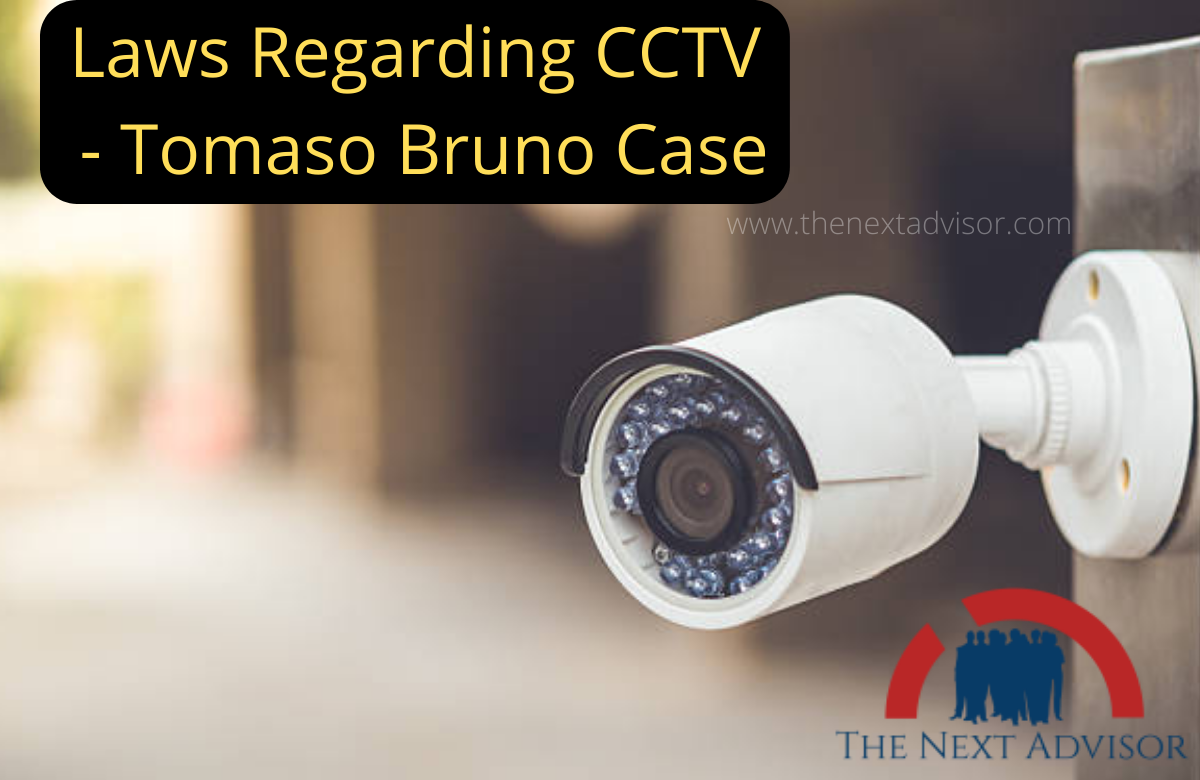What are the laws regarding CCTV? How can CCTV be installed and under which law it can be installed and how can a CCTV camera be installed? What if the laws regarding CCTV if the camera is facing toward the neighbor’s house?
CCTV has been described as the very best evidence by the Supreme Court in Tomaso Bruno Vs Union of India. This means that the CCTV footage can help you very well in any case. CCTV may work for you very well to catch criminals. First of all, if someone is stealing something, then CCTV can be useful to recognize a person in the crime of theft, then it happens that nowadays people have started getting CCTV installed in their homes.
But if you do not know what are the rules for installing CCTV meaning if you don’t know the laws regarding CCTV, then you can get into trouble.
IT Act, Section 66(e):– Whoever, intentionally or knowingly captures, publishes, or transmits the image of a private area of any person without his or her consent, under circumstances violating the privacy of that person, shall be punished with imprisonment which may extend to three years or with fine not exceeding two lakh rupees, or with both.
Secondly, you cannot install CCTV in such a place where the privacy of any woman is being violated. By doing this you can be punished under Section 509 IPC and along with this it will be considered an offense under Section 354(c) IPC which is called “Drushya Nichta” in Hindi. and action will be taken against you.
Section 354(c) of IPC :- Voyeurism
Any man who watches, or captures the image of a woman engaging in a private act in circumstances where she would usually have the expectation of not being observed either by the perpetrator or by any other person at the behest of the perpetrator or disseminates such image shall be punished on first conviction with imprisonment of either description for a term which shall not be less than one year, but which may extend to three years, and shall also be liable to fine, and be punished on a second or subsequent conviction, with imprisonment of either description for a term which shall not be less than three years, but which may extend to seven years, and shall also be liable to fine.
The right to privacy is the fundamental right of every individual. This means that you cannot capture videos of someone without their consent without them knowing it. This means that you cannot install the CCTV facing the neighbor’s house. If you have installed CCTV cameras facing the neighbor’s house, from where the camera captures the people coming to his house or what is happening inside his house. If it is being captured then it will be considered an offense under IT Act Section 66(e).
IT Act, Section 66(e):- Whoever, intentionally or knowingly captures, publishes, or transmits the image of a private area of any person without his or her consent, under circumstances violating the privacy of that person, shall be punished with imprisonment which may extend to three years or with fine not exceeding two lakh rupees, or with both.
You can install CCTV for your protection. You can install CCTV at your place of business. If you are in the business of the hotel industry then keep in mind that you cannot install CCTV in the hotel rooms or toilet area. Otherwise, you can install CCTV anywhere else like you can install the CCTV in the lobby in the reception.
It is the batter itself that wherever CCTV is installed, put a disclaimer under it that you are in the eyes of the CCTV camera so that people know that here they do not have to activate any private act. Because here they can be recorded and video can be captured in CCTV camera. And if you have installed this camera in the right place according to the law or according to the laws regarding CCTV, then it is valid to capture a private act at such a place and come in a video shoot.

























